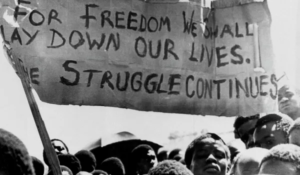Maya Nasr, 23, is an aerospace engineer and doctoral student at MIT who is helping NASA prepare its next Mars rover.TEXT SIZEEMAILPRINTMORE
Maya Nasr was admitted to the Massachusetts Institute of Technology at 16 to study aerospace engineering. Currently a doctoral student there, she has been working on NASA’s next Mars rover, slated for launch this summer.
“By the time I finish my Ph.D., I will have spent 10 years in the U.S. researching what I am passionate about — getting people to Mars and human space exploration,” said Nasr, 23, who is Lebanese. “I would really like to stay here and work in this field.”
But recently she has been racked with worry that the economic downturn that has left millions of Americans unemployed could threaten the visa program that would allow her to work as a foreigner in the United States once she graduates. “If I had to, I would consider Canada, the U.K. or Europe, but the U.S. is the place,” she said.
President Donald Trump is expected to issue an executive order within days to temporarily suspend various work visas that businesses rely on to hire foreigners, and also lay the groundwork for regulatory changes that would limit employment opportunities for foreign graduates of U.S. universities like Nasr.
The details and scope of the plan remain unclear, and it is still a work in progress. But the coming order has elicited an extraordinary response from a diverse coalition that includes universities and sectors spanning manufacturing, technology and consulting, which have been inundating the White House with letters and phone calls.
“What is scaring so many different groups here is that the order is going to impact everyone,” said Shev Dalal-Dheini, director of government relations at the American Immigration Lawyers Association.
Trump on April 22 signed an executive order that suspended for 60 days the issuance of green cards for applicants outside the country, describing it as protection for unemployed Americans amid the coronavirus pandemic. But he stopped short of suspending visas and programs that allow U.S. employers to hire foreign workers.
Additional limitations on foreign skilled and seasonal workers are now in the works, said several people who have been communicating with the administration in an attempt to narrow the scope of the proposed limitations. “What is being proposed is significant; we just don’t know how far it will go,” Dalal-Dheini said.
A key target is expected to be the H-1B visa, often issued to computer programmers and other skilled workers who critics say often displace Americans from such jobs. The order is also expected to temporarily halt other visas, including L-1s, for executives transferred within companies; H-2Bs, for seasonal workers who often work in landscaping and hospitality; and J-1s, issued to au pairs, students on work-study summer programs and others.
The administration is also likely to freeze or downsize a popular program, Optional Practical Training, that enables graduates of U.S. universities like Nasr to work in the country for up to three years if they are in science, technology or mathematics fields. Once in the program, the graduates are often sponsored for H-1Bs by their employers, who eventually may help them get green cards.
The proposed limits on foreign worker visas, if adopted, would be the latest restriction on immigration imposed by the Trump administration since the onset of the coronavirus pandemic.
The National Association of Manufacturers, which represents 14,000 small and large companies, sent a letter to the White House on June 1 warning that the planned immigration restrictions would stymie recovery efforts.
“We urge you to avoid immigration actions, either temporary or long term, that would cause uncertainty and impose great costs on our nation at this critical time,” said the letter.




